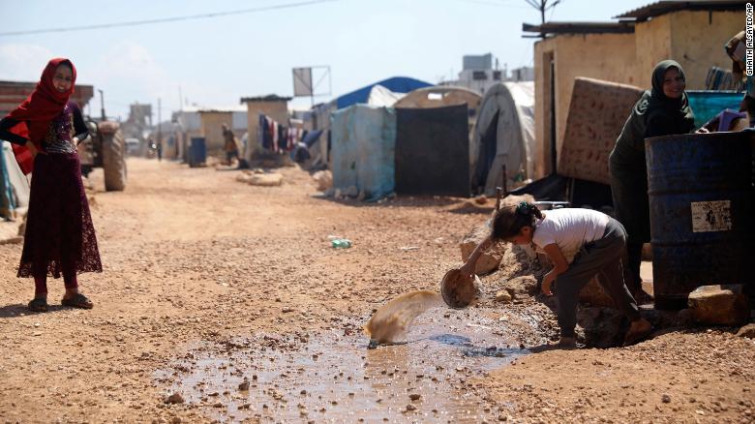The ongoing Covid-19 pandemic is devastating the quality of livelihoods of minority and indigenous communities in Africa and around the world, according to the newly released annual Minority and Indigenous Trends 2021 report by Minority Rights Group International (MRG).
Often marginalised and treated as afterthoughts in mainstream national decision making, minority and indigenous communities are seeing the global pandemic worsen their access to decent jobs, quality healthcare and education, dignified housing and other social and economic needs.
In Uganda and Rwanda, among the Batwa, Mbuti and Baka minority and indigenous peoples, Covid-19 is worsening long-standing discrimination against these communities. These communities, evicted from their ancestral lands in the name of conservation, often live on the fringes of the wider society.
The meagre income earned from tourism through the sale of handicrafts and pottery dried up fast with lockdowns. To add salt to injury, these communities were ignored in social protection measures such as the distribution of foodstuff.
"The plight of forest peoples in Rwanda, Uganda and other countries across Central Africa not only illustrates the need for tailored, accessible and culturally appropriate interventions in the midst of a pandemic. It also reflects how the legacy of landlessness and dispossession has affected every aspect of their lives, from health and livelihoods to participation and well-being, long before the pandemic began," recommends the report.
In Ghana, the lockdown led to the loss of livelihoods for already struggling Liberian former refugees in the country. This made the lives of this vulnerable group even more precarious after Ghana ceased legal recognition of their status as refugees over a decade ago.
"Ghana adopted a range of policies that appeared to prioritize citizens over non-citizens, whose plight was often overlooked. In this context, former Liberian refugees, who were now only protected under restrictive rights to work, fell through the cracks, as the government enforced strict immigration laws and restricted freedom of movement, resulting in crackdowns on migrants and widespread loss of livelihoods," notes the report.
Additionally, In Sudan, the refugee situation in the country has become more complicated with the pandemic, with one million Ethiopians fleeing to Sudan to escape the armed conflict in Ethiopia’s Tigray region. This has put further stress on the health and other humanitarian facilities in the refugee host communities in Sudan.
South Africa, which had one of the strictest lockdowns in Africa, has seen a re-emergence of xenophobic attitudes towards nationals of other countries living in the country. Dealing with biting unemployment and underemployment, many South Africans often blame nationals of other African countries for ‘stealing’ their opportunities.
Further, building the frustrations of the stay-at-home orders, South Africa has seen an increase in gender-based violence, mostly against black women.
"After a nine-week lockdown was eased, murders of women took a significant leap, with 21 mostly Black women killed in the first two weeks. While the Minister of Police stated that crimes overall had decreased during lockdown due to a ban on alcohol sales, with the prevailing idea being that the return to selling alcohol had fuelled the increase in femicides, women’s rights advocates were quick," notes the report.
As African countries continue to battle Covid-19, Agnes Kabajuni, MRG’s Africa Regional Manager says authorities should ensure minority and indigenous communities are not left behind.
“It is incumbent upon authorities to recognise that the ongoing Covid-19 pandemic is affecting already marginalised minorities and indigenous communities. Measures aimed at combating the pandemic therefore, should not exacerbate such marginalisation, but rather address them,” notes Kabajuni.
In addition to Sub-Saharan Africa, the report also explores the impact of Covid-19 minority and indigenous communities in Asia, Central and North America, Middle East and North Africa, Oceania and South America
Minority and Indigenous Trends 2021: Focus on Covid-19 is available at www.minorityrights.org/trends2021.
For more information, please contact:
Billy Rwothungeyo, MRG Africa Media Officer (Kampala, Uganda)
Email: billy.rwothungeyo@minorityrights.org
Notes to editors
- Minority Rights Group International (MRG) is the leading international human rights organisation working to secure the rights of ethnic, religious and linguistic minorities and indigenous peoples. We work with more than 150 partners in over 50 countries.
- MRG’s online World Directory of Minorities and Indigenous Peoples is used globally and updated frequently, with more than 50 entries updated this year alone.
Latest Stories
-
Fuel Levy: What crime have Ghanaians committed? – Dr Amin Adam questions gov’t
4 minutes -
Postecoglou sacked by Spurs after Europa League win
39 minutes -
Employee fraud is everywhere, be intentional about stopping it – Expert counsels
2 hours -
We have a very good chance of making it to the World Cup – Jordan Ayew
2 hours -
Innovation Hubs as Engines of Sustainability: Charting Ghana’s path with lessons from the Hamburg Sustainability Conference 2025
2 hours -
UHAS makes history with publication of landmark study in Nature Human Behaviour
2 hours -
Asante Gold Corporation commended for community development projects in W/N region
3 hours -
World Environment Day: Stakeholders urge collaborative effort for sustainable ecosystem restoration
3 hours -
Photos: Thousands of Muslims observe Eid al-Adha 2025 at Independence Square
3 hours -
Russia launches ‘massive’ strikes days after Ukrainian drone attack
3 hours -
Ghana, Morocco agree to Visa-free travel for Ghanaians, says Foreign Affairs Minister
3 hours -
Samson Anyenini and OneGhana Movement renew calls for compensation for June 3 victims
3 hours -
California-based VIMA delivers lifesaving borehole to forgotten Ghanaian village
4 hours -
Health Minister calls for independent mediation to end nurses’ strike
4 hours -
Office of the Special Prosecutor remains Ghana’s most promising anti-corruption tool
4 hours

